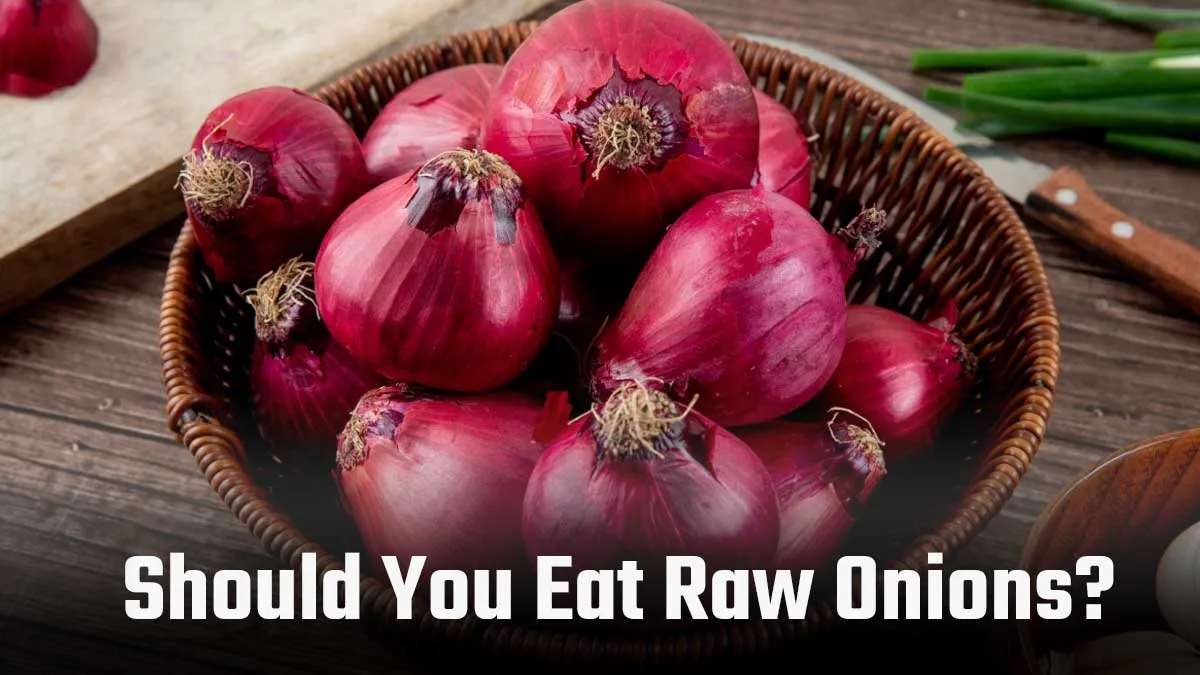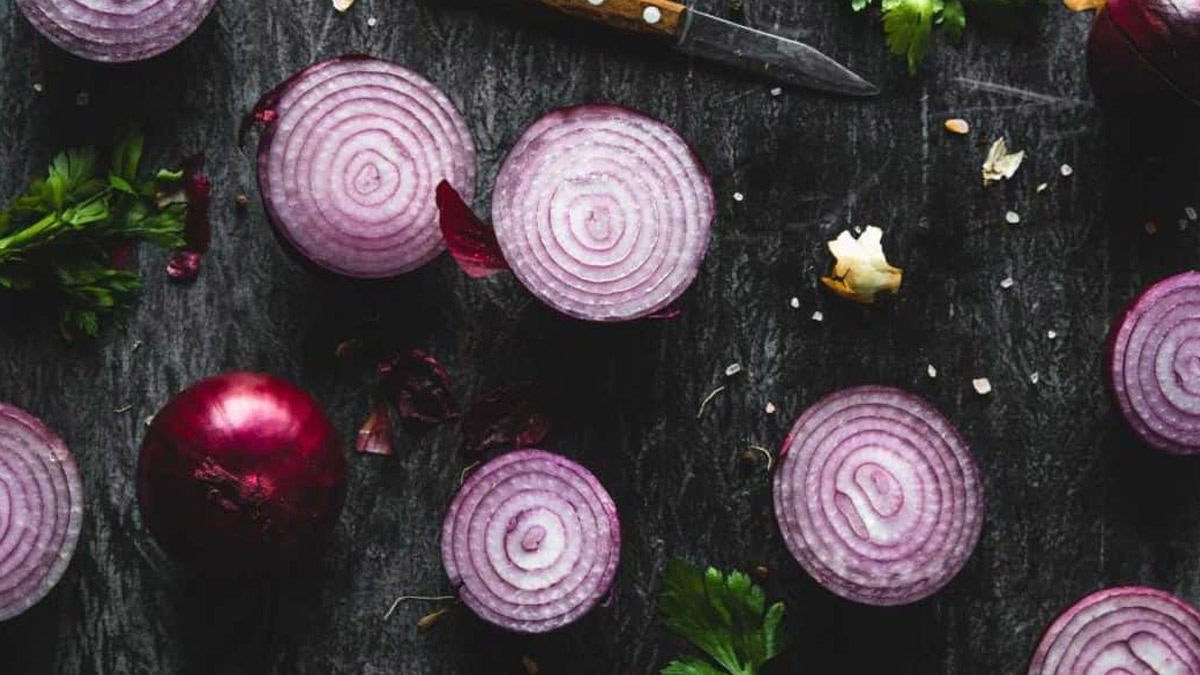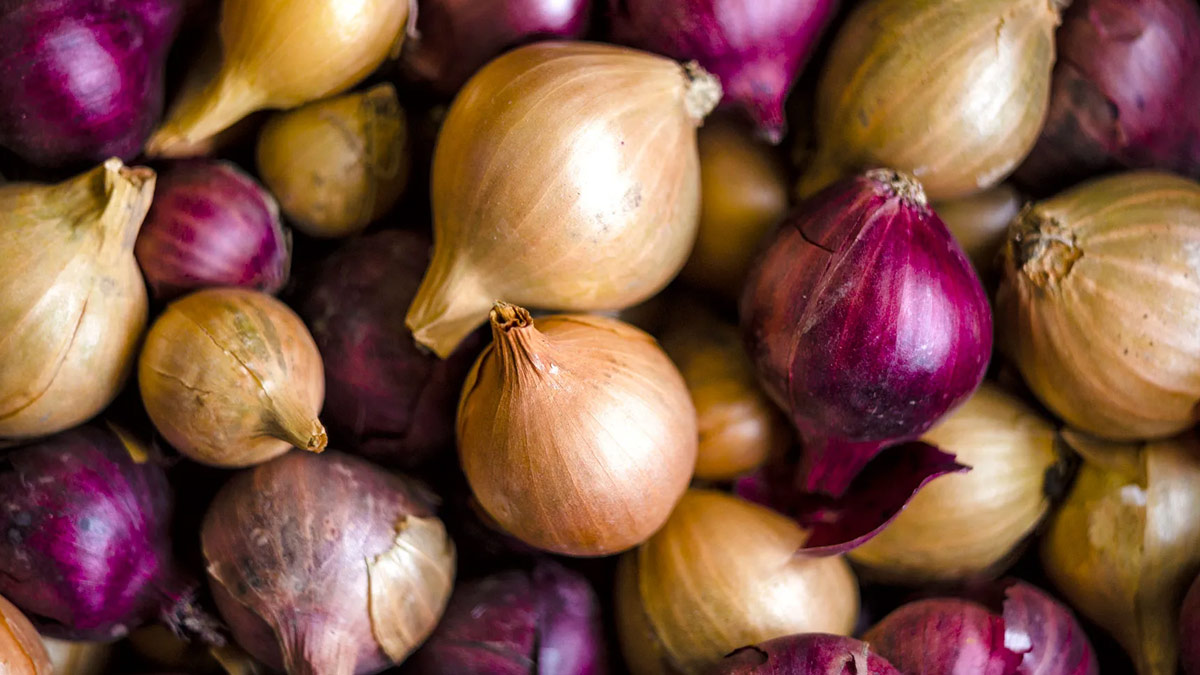
Onions are a staple in kitchens everywhere. Whether you’re tossing them into a salad, sizzling them in a curry, or layering them on a burger, onions seem to pop up in almost every meal. Some people love their sharp taste and crunchy bite, while others just hope they don’t have to deal with onion breath all day! But while onions add flavour to our food, have you ever wondered if they’re actually good for you? Dt. Bhawesh Gupta, Founder of My Dietitian India, shares what nutrition science really says about onions and why you might want to think twice before eating them raw.
Table of Content:-
The Not-So-Good Side of Onions
View this post on Instagram
Onions may appear innocent, but they have a couple of tricks up their sleeves. Onions are full of anti-nutrients and substances that will disrupt your body's ability to absorb essential minerals, Bhawesh Gupta tells us. These include:
- Flavonoids
- Tannins
- Alkaloids
- Cyanogenic glycosides
Although flavonoids have been commonly touted for their antioxidant qualities, in excess, some anti-nutrients have the ability to inhibit the uptake of minerals such as iron and calcium. Cyanogenic glycosides, especially, can be toxic in excessively large quantities and will even lead to cyanide poisoning, although this is a highly unlikely event and would necessitate consuming a massive quantity of onions.
ALSO READ: Can A Clove-Studded Apple Ease Migraines? Viral Video Claim Debunked By Expert
Onions and Digestive Troubles![Onions disadvantages 3 - 2025-06-09T181342.693]()
One more thing to pay attention to is that onions are rich in FODMAPs. FODMAPs are a collection of carbohydrates that are challenging for certain individuals to digest. If you suffer from IBS (Irritable Bowel Syndrome) or IBD (Inflammatory Bowel Disease), onions can lead to:
- Gas
- Bloating
- Heartburn
- Stomach cramps
Even individuals who are not suffering from digestive disorders may find themselves slightly gassy or uncomfortable after consuming copious amounts of onions. A published study in the journal Nutrients points out that onions are one of the most frequent culprits of digestive disorders in those with FODMAP sensitivity.
Hidden Dangers of Raw Onions
Onions are underground vegetables, so they can absorb germs and even parasites from the ground. Raw onion consumption raises the possibility of ingesting dangerous microorganisms, such as parasitic tapeworms. In some instances, these can lead to severe infections such as cystic cirrhosis of the brain. Furthermore, raw onions are renowned for leaving a pungent, lingering odour on your breath as well as your body due to their sulphur compounds.
Should You Avoid Eating Onions?![harmful side of onion 1 - 2025-06-09T181340.697]()
The good news is, you don't need to entirely avoid onions. The expert suggests cooking onions prior to consumption. Here's why:
- Cooking kills most of the bad germs and parasites that may be found in raw onions.
- Heat degrades most anti-nutrients, which makes minerals easier for your body to absorb.
- Cooked onions are less likely to cause gut problems than raw onions.
- They provide a great, tasty flavour foundation for most Indian and international foods.
- Therefore, though raw onions may not be suitable for all, cooked onions can still be safe and delectable additions to your diet.
ALSO READ: What Is Gond Katira (Tragacanth Gum)? Is It Safe To Consume Daily
Conclusion
Onions are a staple of many kitchens, but they are not without their warnings. As Dt. Bhawesh Gupta points out, consuming raw onions can at times result in digestive issues and even unusual infections. Cooked onions are the way to go if you want the best flavour with minimal dangers. So leave the onions in your dishes and just ensure they are given a healthy sizzle first!
Also watch this video
How we keep this article up to date:
We work with experts and keep a close eye on the latest in health and wellness. Whenever there is a new research or helpful information, we update our articles with accurate and useful advice.
Current Version

